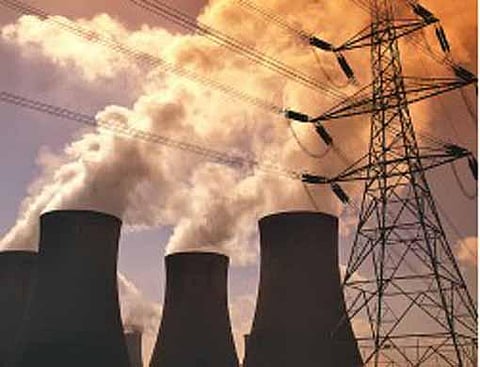NPT session approves steps on nuclear-free Middle East
Landmark conference agrees on talks toward the establishment of a nuclear weapon-free zone in the Middle East

United Nations: A landmark conference to curb the spread of nuclear weapons agreed here Friday on talks toward the establishment of a nuclear weapon-free zone in the Middle East.
It was the first agreement in a decade on the nuclear Non-Proliferation Treaty (NPT), which since 1970 has set the global agenda for keeping countries from getting the bomb.
The 28-page final document also presented "action plans" on moves towards disarmament, better verification of nuclear programs worldwide to be sure they are peaceful and promoting the peaceful use of nuclear energy.
The NPT has not reached an accord in twice-a-decade review meetings since drawing up in 2000 steps to nuclear disarmament.
A European diplomat said the meaning of the successful agreement is that after 10 years the process to review and move forward with the NPT has been given new life.
The most controversial item was the Middle East nuclear-weapon-free zone.
The final statement calls for holding a conference in 2012 "to be attended by all states of the Middle East, leading to the establishment" of such a zone.
It also mentions "the importance of Israel's accession to the treaty and the placement of all its nuclear facilities under comprehensive International Atomic Energy Agency (IAEA) safeguards."
The United States had opposed putting such a statement in the text.
White House non-proliferation adviser Gary Samore said Friday that it unfairly singles out Israel and could lead to the conference not taking place if Israel takes offense and refuses to attend.
Iran was not cited despite its defiance of successive UN resolutions calling for the Islamic republic to halt uranium enrichment and be more transparent about its suspect nuclear program.
Egypt and Iran have led calls for Israel to join the NPT, which would mean the Jewish state would have to give up its nuclear arsenal, and for it to agree to a nuclear weapon-free zone in the Middle East.
Israel, which opposes creating a zone until Middle East peace has been achieved, has never acknowledged that it has nuclear weapons.
Egyptian ambassador to the UN Maged Abdelaziz praised the NPT conference for "putting into action an effective process to implement the NPT's 1995 resolution on the Middle East," which first called for the zone.
The United States vowed Friday to work for a successful meeting in 2012.
Under Secretary of State for Arms Control and International Security Ellen Tauscher told the NPT gathering: "We will work with the countries in the region to create conditions for a successful conference."
But she added that "our ability to do so has been seriously jeopardised because the final document singles out Israel in the Middle East section, a fact that the United States deeply regrets."
Samore was more categoric: "I don't know if the conference will even happen," he said.
He said he was also not sure if Iran would come because their defiance of UN demands to rein in its nuclear program "would be on the agenda."
The NPT establishes a bargain whereby nuclear weapon states move to disarm while others forego seeking the bomb in return for help to develop peaceful nuclear programs.
But it is in crisis, as developing nations feel nuclear-armed states are not keeping their part of the deal.
Nuclear weapon and non-weapon states had clashed here on Wednesday over setting a timetable for weapon states to disarm.
The compromise in the draft text is for dates not to be set but for there to be a commitment by weapon states to "rapidly" move towards disarmament.


